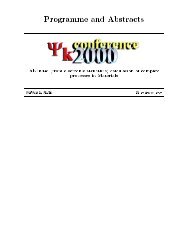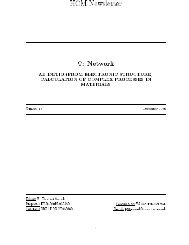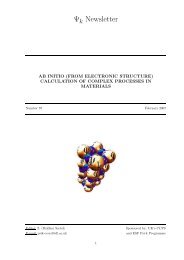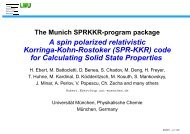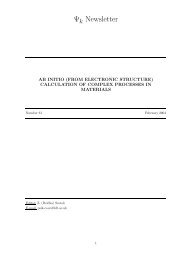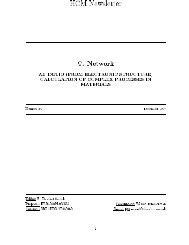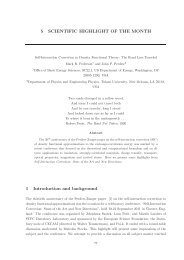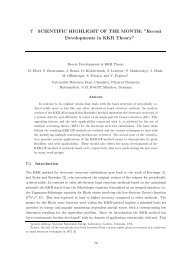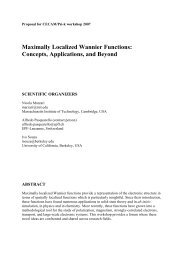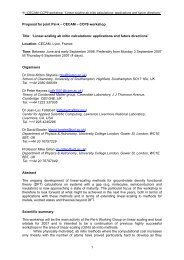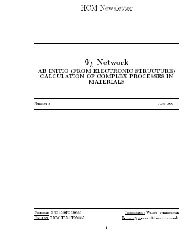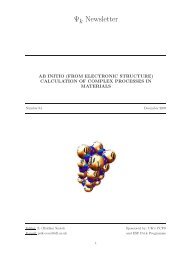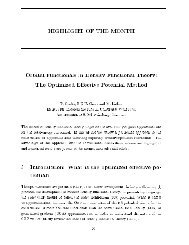Newsletter 107 - October 2011 - (pdf - 0.6 MB) - Psi-k
Newsletter 107 - October 2011 - (pdf - 0.6 MB) - Psi-k
Newsletter 107 - October 2011 - (pdf - 0.6 MB) - Psi-k
You also want an ePaper? Increase the reach of your titles
YUMPU automatically turns print PDFs into web optimized ePapers that Google loves.
2. Advanced materials in next generation fission nuclear reactors and the new inertial<br />
confinement and magnetic fusion initiatives. ESFRI - HiPER EU project and DEMO<br />
international collaboration.<br />
3. Integration in the very attractive scientific developments of ever-growing international<br />
research community involved in fusion materials technology.<br />
The research activity will concern atomistic mechanisms and materials properties at interfaces<br />
of interest. The Post Doctoral fellow will help develop atomistic scale interfacial<br />
models relevant to our multiscale modelling program by means of ab initio calculations<br />
using commercially widespread packages, such as Wien2k and VASP, already available<br />
within our group. Other first principles simulation packages (Abinit, SIESTA, QuantumESPRESSO,...)<br />
could possibly be used at some stage to perform specific computations.<br />
Previous experience with density-functional calculations based on plane waves and pseudopotentials<br />
is requested. Experience in ab initio simulations on surfaces and a basic<br />
knowledge on the foundations of density functional theory are highly recommended. Expertise<br />
in installation and running of computer codes in parallel environments is required.<br />
The applicant should be able to work with Linux, have at least a basic scripting knowledge,<br />
as well as be acquainted with Fortran and C programming languages. Expert handling<br />
of visualization tools is a plus. Since the results obtained from the first principle calculations<br />
will be used as an input for molecular dynamics and lattice kinetic Monte Carlo<br />
codes in order to analyse defect evolution at experimentally relevant time frames, familiarity<br />
in the use of such techniques would be advantageous. The Post Doctoral fellow<br />
will be working in a highly collaborative environment in close synergy with experimentalists<br />
from other institutions. Therefore, research performed at large facilities, such as an<br />
X-ray synchrotron or neutron sources, will be highly appreciated. Both theoretical and<br />
experimental background in fields related to nuclear materials science would also be of<br />
great interest. Finally, the applicant should be able to fluently communicate in English.<br />
Spanish basic knowledge would be helpful.<br />
The interested candidates should submit (in PDF-format) their (1) curriculum vitae,<br />
(2) publication list, and (3) one reprint of representative previous research. The interested<br />
candidate should also express his/her motivation in a covering letter, including the<br />
prospected date of availability, and arrange confidential letters of recommendation to be<br />
sent to the address below. Only complete applications will be processed. The selection<br />
process will continue until a suitable candidate occupies this opening.<br />
Contact: Prof. Roberto Iglesias Pastrana<br />
Department of Physics<br />
Faculty of Science<br />
University of Oviedo<br />
roberto@uniovi.es<br />
29



